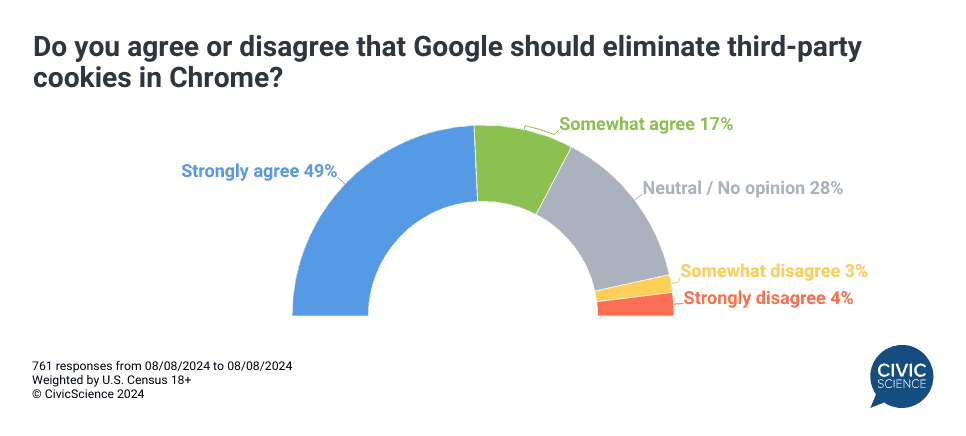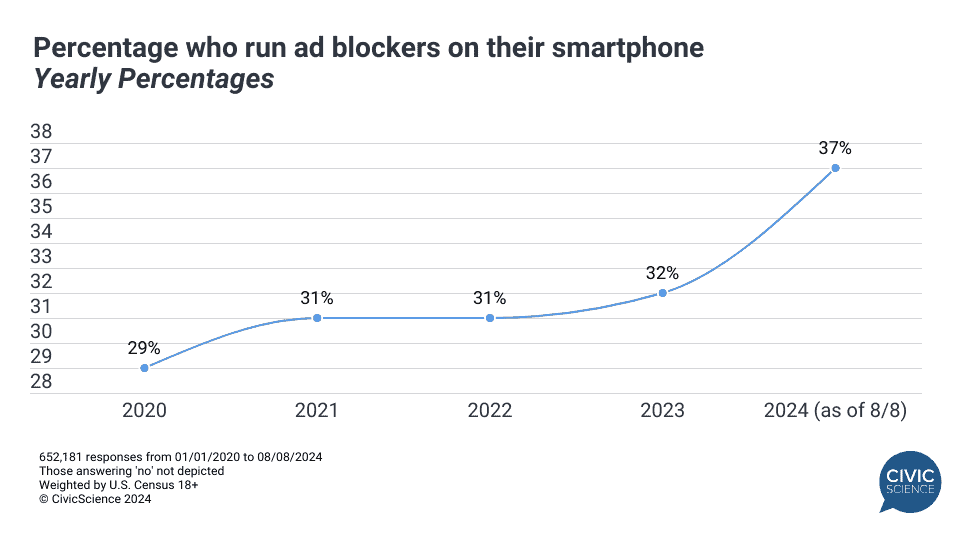This is just a sneak peek at the thousands of consumer insights available to CivicScience clients. Discover more data.
What We Know
Google originally announced it would be phasing out third-party cookies on Chrome in 2020. This past July, however, the technology company said it would no longer be eliminating tracking cookies, with some speculating pushback from the ad industry. Rather, it’s reported Google will develop new consent tools to enable Chrome users to opt in or out of cookies on the browser, although the details of what that would look like remain to be seen.
What We’re Seeing
How are Google’s plans likely to sit with U.S. consumers?
- Consumers care about cookies. Current CivicScience polling data find that a whopping two-thirds of U.S. adults agree that Google should eliminate third-party cookies on Chrome, with 49% ‘strongly’ agreeing with the notion. The remainder are largely neutral (28%).
- Google users agree. Among people who use Google, 61% of Google users and 66% of Chrome users want to see the end of third-party cookies on Chrome. Safari users are more neutral (53% agree, 36% are neutral), likely because the browser already allows for iPhone users to block cookies.
- Samsung smartphone users are a solid “yes.” The majority of both Samsung and iPhone users support the elimination of 3P cookies on Chrome, with Samsung users more in favor (79%) than iPhone users (71%).

Weigh In: How frequently do you use services provided by Google?
What We Can Learn
The above data suggest that consumers have certainly not grown more accepting of third-party cookie tracking. In fact, the opposite is true. Privacy concerns are growing and consumers are looking for ways to avoid cookie-based targeting:
- In 2024, 47% of U.S. adults are ‘very’ concerned about consumer privacy in general, up from 45% in 2023 and 43% in 2022.
- Likewise, 37% say they are ‘very’ concerned about their online activity being shared with advertisers, up from 25% in 2023 and 2022.
- Ad blocking has also increased, from 29% in 2020 to 37% of consumers today who say they run ad-blockers on their smartphones.

Cast Your Vote: Which of the following web browsers is your favorite? 💻
What To Take Away
The majority of U.S. consumers remain aware of and unfavorable to third-party cookie tracking, and concerned about the implications for online privacy. While a total Chrome cookie ban seems unlikely, the data suggest that many users would welcome an opportunity to opt out of cookie tracking if – or when – given the choice.








